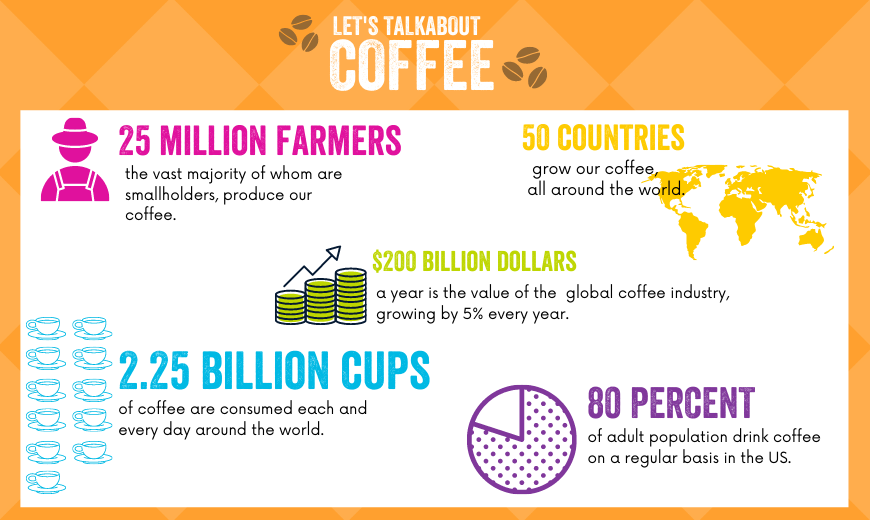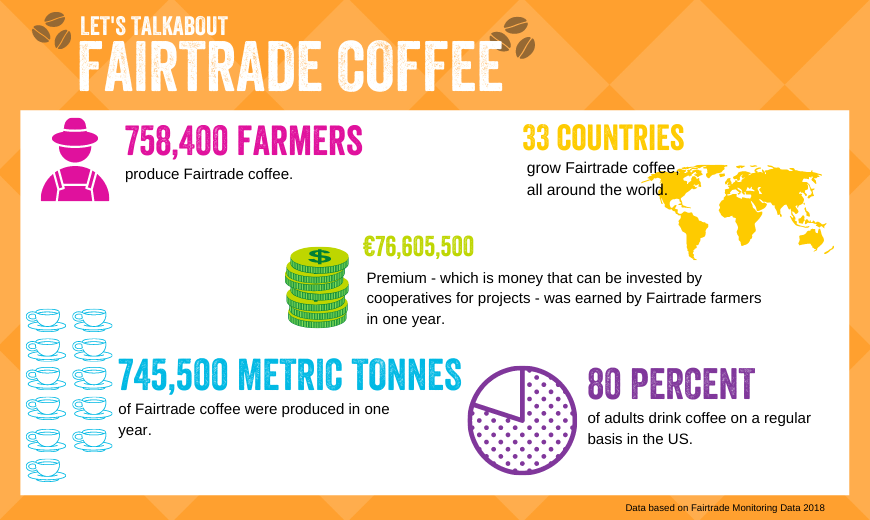In all likelihood, this year’s World Coffee Day on October 1st does not occupy a prominent place on your calendar. There are so many other dates that compete for our attention, that a day dedicated to a food staple many of us take for granted might seem superfluous.
It does, however, offer us an opportunity to celebrate, and reflect, on one of the most popular beverages in the world today. A significant number of people on the planet drink coffee in some way, shape or form every day. Each of us has built a unique ritual around it, though sometimes we move through that daily practice without ever taking note of the incredible journey that the coffee in our cup has undertaken.
If you’re reading this, then I’m reasonably certain that coffee plays an important role in some aspect of your day. Perhaps one way to mark World Coffee Day is for each of us to pour a deep cup, and take a few moments to think on how coffee connects us to ourselves, those around us, and even to far-flung places around the world.
Beyond just numbers
There are a variety of studies available that point to the multiple health benefits of coffee, including improved mental and physical performance, an abundance of antioxidants and essential nutrients, lowering the risk of some cancers and type 2 diabetes. Some studies point to coffee’s ability to help protect us from some forms of Alzheimer’s disease and dementia while also lowering our risk to developing Parkinson’s disease.
And then there are the statistics: Coffee is grown in more than 50 countries around the world, produced by over 25 million farmers, the vast majority of whom are smallholders, and the fact that there are nearly 2.25 billion cups of coffee consumed each and every day around the world. In the US alone, nearly 80% of the adult population drinks coffee on a regular basis. The global coffee industry is currently valued at $200 billion dollars a year and boasts a significant annual growth rate of over 5%. It has been one of the most resilient industries in the world, surviving natural disasters, world wars and, yes, even pandemics.

Meanwhile, on the other side of the statistical coin, we discover another reality. It’s important to remember that a typical coffee farmer receives only one paycheck per year from their harvest. A single paycheck to recoup the costs of producing their coffee and food crops, pay for school fees, medical expenses, housing, transport and any unseen emergencies.
A recent study by a multinational importer revealed that, during the 2018/19 harvest, 60% of coffee producers were unable to meet their cost of production, much less support their families or contribute to their communities. A significant number of coffee farmers have reported that for 3-4 months each year they undergo ‘los meses flacos’ or ‘the thin months’ when money from their coffee harvest runs out and they face an even more uncertain future due to food scarcity. The irony of farmers without food.
Fairtrade was founded to provide smallholder farmers around the world with a financial safety net, guaranteeing a minimum price as well as a social premium to help them invest in projects and priorities that can help build their capacity to meet future challenges. In addition, in many parts of the world smallholders produce up to 80%, this is why the Sustainable Development Goals recognize small-scale farming as key to a world with no hunger.

So, when pouring your first, third (or tenth) cup of coffee on World Coffee Day, I encourage you to pause and acknowledge how this cup connects you to the world at your doorstep, and the coffee farming families half a world away. We at Fairtrade International are not asking you to make a donation, but instead to make a choice. By choosing Fairtrade certified coffee, you are helping farmers have a fair present, and future.
So, on World Coffee Day, drink up. And drink fair.
If you are interested in learning more about the coffee industry, you can check out recent webinar: The future of Sustainability and Coffee Industry in times of Covid-19




